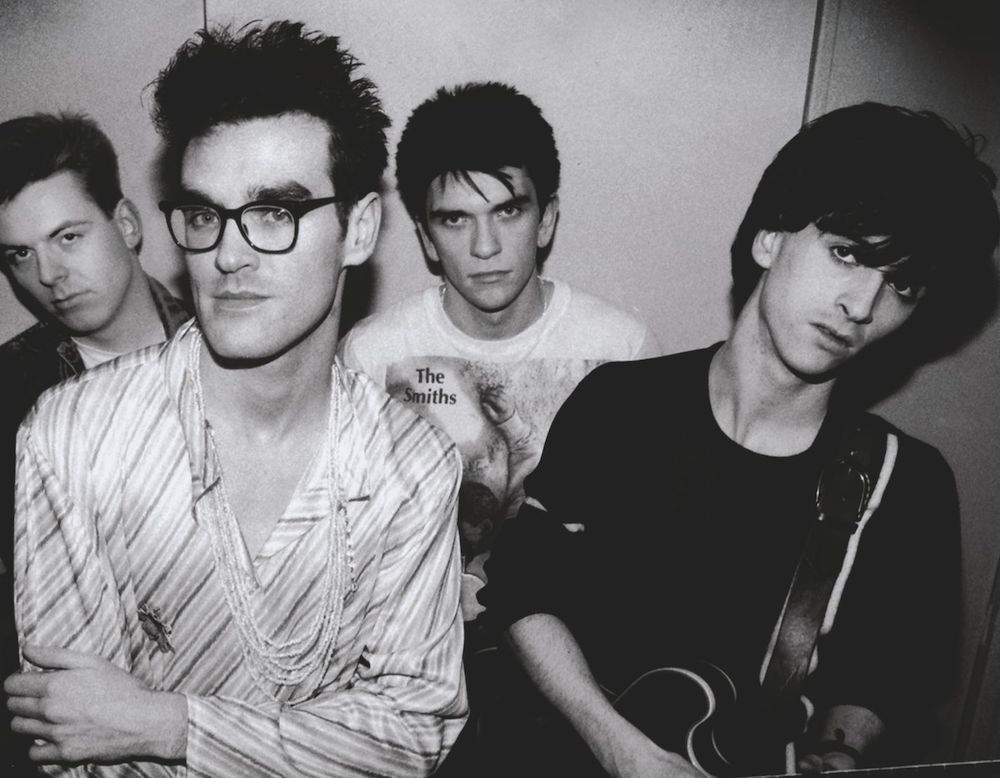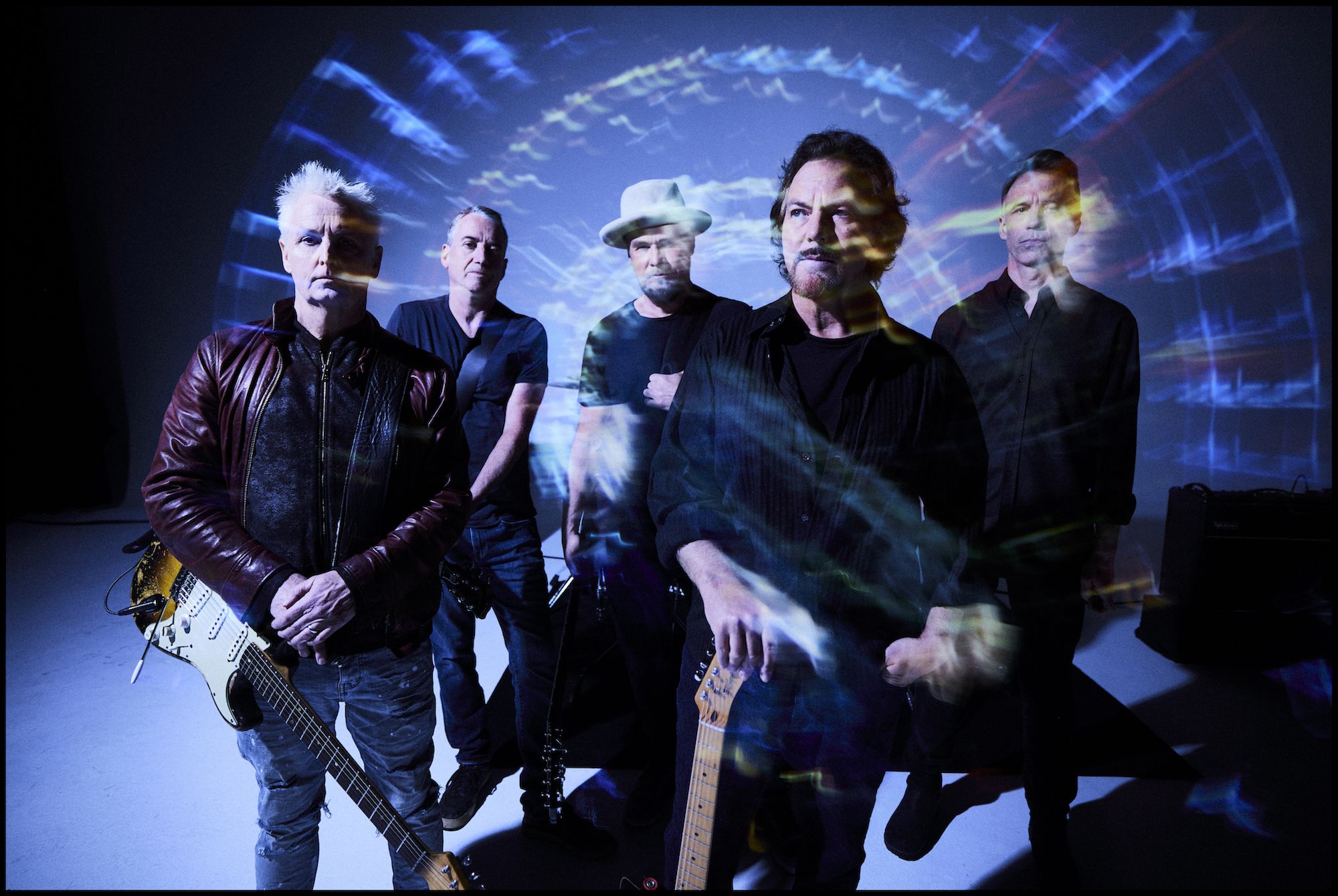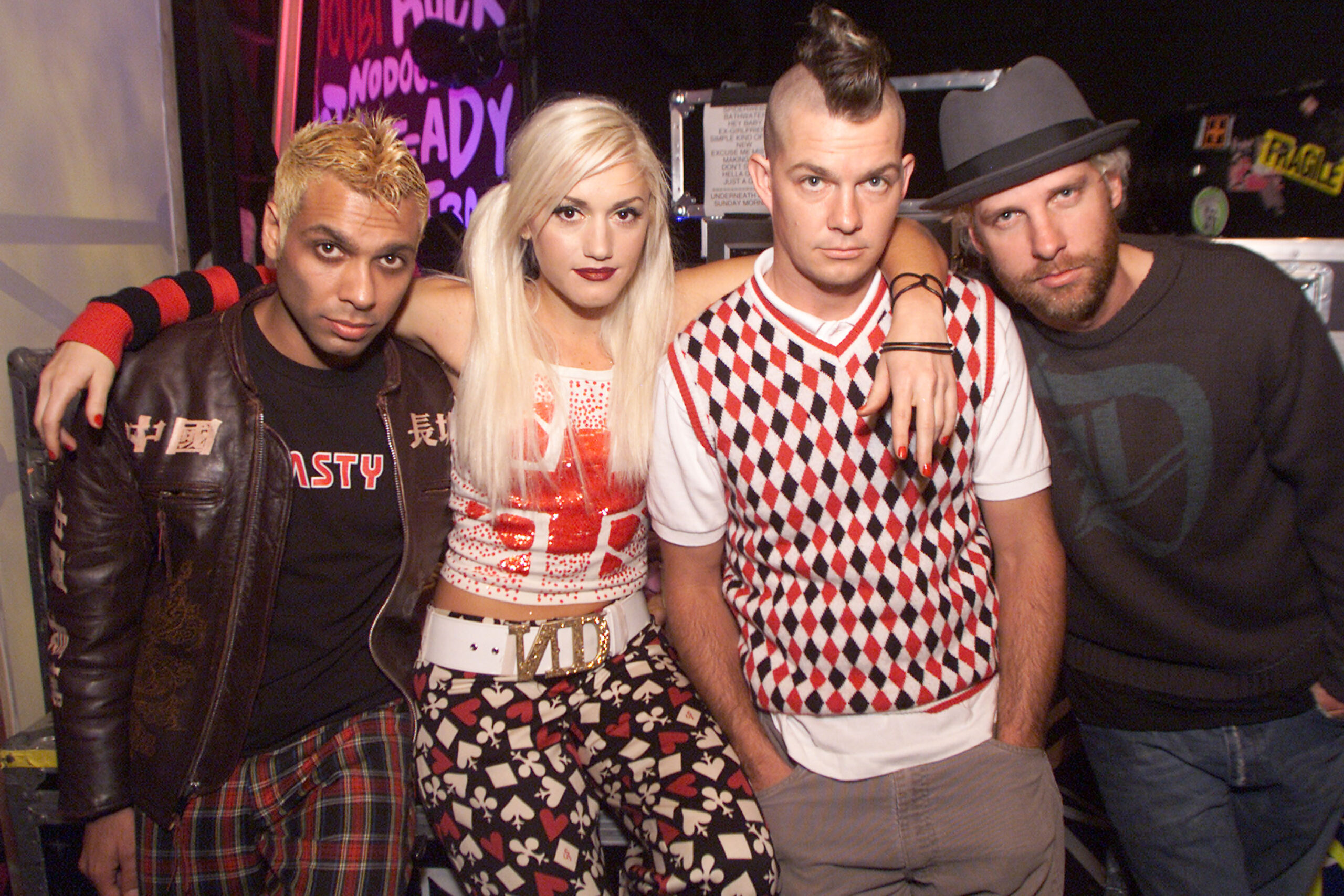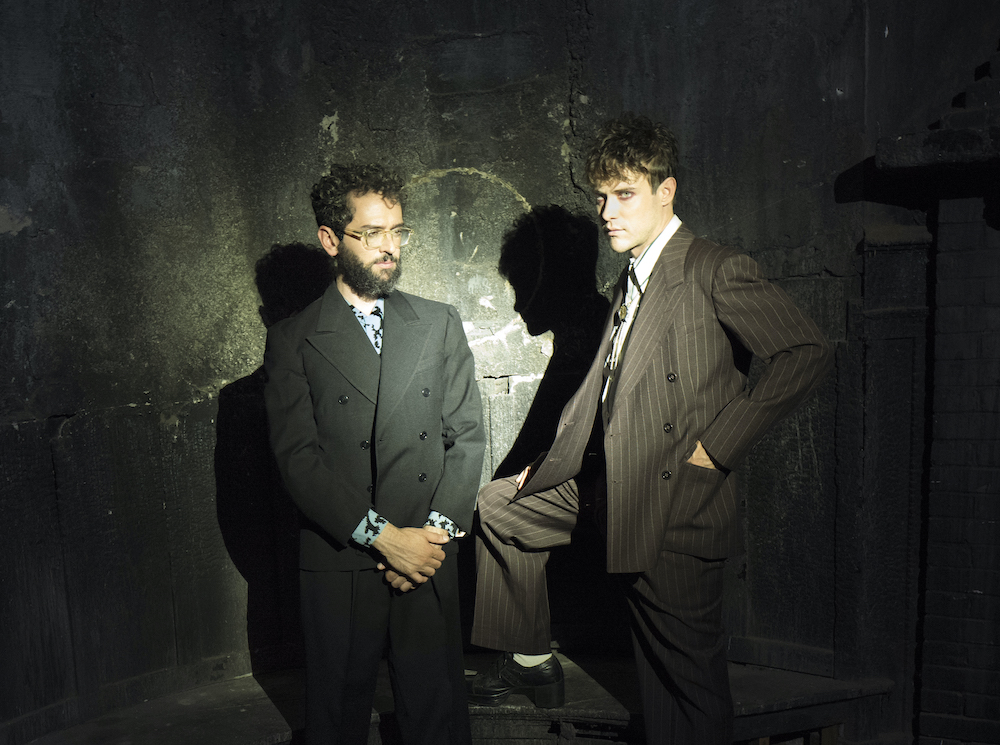Choosing the ten best songs by one of Brooklyn's most beloved children, the Notorious B.I.G., is essentially a fool's errand. The rapper, né Christopher Wallace, had too dynamic a scope, despite his catalogue being limited to his debut, Ready To Die, and its double-disc follow-up, Life After Death. At times he was Aesop, others Hitchcock, often Don Giovanni. While there are many in the canon who are adept storytellers or able to spin clever yarns about their money, women, and other ephemera, Biggie Smalls was able to finesse the English language in a way that hardly ever utilized egregious transitions or flossing -- almost everything he spit advanced a narrative, even if it was one of party and bullshit. He knew all the best ones, too, but never rapped about dancing on couches -- he absorbed every scene, and at the end of the night he could give you a detailed rundown of every corner of the room. His lyrics were meticulous and mind-bending, packed with brutal double entendres and breadth of vocabulary that rarely required him to use cliché to pad a punchline.
It would be fair to question whether he would have been able to maintain the same lyrical prowess over the past decade had he not passed away. Tomorrow, March 9, marks 16 years since the rapper's death, and if we want to take a guess based on the legacy Big left behind, we can look to his dear friend Jay-Z. In 1997, Jay very presciently declared on In My Lifetime Vol. 1 track "The City Is Mine" that he would proudly take the reins and enact his own career as Smalls would have. It's more likely that we would have probably seen Jay trounce Biggie's career, but we still have a host of tracks in Jay's catalogue indebted to Biggie's as source material to really weigh the debate. A bunch of them made it to this list, including one of Jay's most recognizable records.
A lot of Biggie's classics, however, like "Juicy" and "Hypnotize," did not. Both are crucial to his career, but that doesn't make them the best. "Mo' Money, Mo' Problems" does not have a place in the top ten, either. It was undeniable hit, but in Bad Boy's era of shiny suits and glossy Hype Williams videos, it was turned into Ma$e and Puffy's song with a Big verse at the end. Puffy knew how to draw the masses to Biggie, for sure, and while it was a smart single, it's one of the sparing tracks that is racked with superfluous lyrics from Big.
That was what made him so special -- it was only an anomaly when he was rapping with filler. Oftentimes it was a necessary negative. When he invited Midwestern speed-rap luminaries Bone Thugs-N-Harmony to flex their skills on Life After Death disc-two opener "Notorious Thugs," it wasn't about what Biggie was saying, it was about whether he could keep up with the slick-tongued quartet. And he did it with panache.
His deft ability to inhabit so many space were what endeared him to many and made others so loath to love him. The East Coast-West Coast rivalry was so active by the time of his shooting that it seemed almost inevitable. It was too soon for L.A. to be over the loss of their prodigal son, 2Pac, especially with the looming notion that the Bad Boy camp could have been involved in his murder. On March 9, 1997 just after 1 a.m., he was declared dead with damage to his colon, liver, heart, and lung. If his public persona wasn't a clear indication that he was adored by many, it was made readily apparent by the broadcast of his funeral, replete with packed streets in his home of Bedford Stuyvesant and Clinton Hill, and an iconic shot of his paramour and fellow rapper Lil' Kim nearly collapsing in hysterics while being held up by their friend and collaborator Mary J. Blige.
I, too, am one of the people who has loved Biggie, albeit from a fan's distance, with a large heart since I first heard "Juicy" on the radio at a very young age. Here, we'll look critically at his two solo records he gave approval to be released -- if we want to get technical, Life After Death is a posthumous album, as it was in stores a few weeks after he passed -- as well as his crew album with Junior M.A.F.I.A. and guest appearances where he stole the show. Rebirth, Duets, and other Biggie releases of their ilk have not been considered for this list because there is no confirmation that he felt they belong in his body of work.
10. Jay-Z - “Brooklyn’s Finest” (Feat. the Notorious B.I.G.) (from Reasonable Doubt, 1996)
This may not actually be one of Big’s songs, but it’s an eerie torch-passer that has him completely decimating Jay even though he’s riding one of his fiercest lyrical waves. Big was always the better rapper, but he clobbers Jay here with an otherworldly use of homonyms to insult both rival 2Pac and his own wife Faith Evans. There was already a ton of controversy surrounding Big and Pac's friendship, particularly the rumors that Pac had done dirty with Evans. “Finest” is where Big took control of the story. We’d already known him to be unafraid of shocking the listener -- Ready To Die has lyrics so deemed so extreme they are even censored on the Parental Advisory edition -- but here he goes to a Rosemary’s Baby level of disrespect, rapping, “Gotta go coolio, man it’s getting too hot/ if Faith had twins, she probably have 2Pac’s/ Get it? Two Pacs." It was public and biting, but his visionary use of homonyms became something that Biggie did better than anyone else.
9. “The World Is Filled...” (Feat. Too $hort, Sean “Diddy” Combs, And Carl Thomas) (from Life After Death, 1997)
“When the Remy’s in the system ain’t no tellin’/ will I fuck ‘em, will I dis ‘em? That’s what the these hoes yellin’/ I’m a pimp by blood, not relation." Sound familiar? Most people recognize those lyrics as the opening bars to Jay-Z's Pharrell-produced party banger "I Just Wanna Love U (Give It To Me)" but its source material is Biggie's verse from "The World Is Filled..." The track is a categorical deep cut, an oftt-overlooked track from the less remarkable second disc of Life After Death, but it's one of the most significant. One of Big's many facets was as a filth-slinger, and here he is matched up with West Coast lothario Too $hort for track that is less about their own respective sexual prowesses -- but if you want to hear about Biggie's, check out "Nasty Boy" and his R. Kelly collaboration that I can't type the name of without blushing -- and more a rumination on others' illicit behavior. And Carl Thomas's crooning throughout the entire song makes the words "pimps" and "hoes" sound like some of the sweetest things ever sung.
8. “Suicidal Thoughts” (from Ready To Die, 1994)
Diddy was famously lambasted by Death Row Records head honcho Suge Knight for prominently appearing in Bad Boy artists' videos and ad-libbing on their tracks. Puff's "ye-ye-ye-yeah"s were a watermark of pride and are now ubiquitous to these cuts, but it's on "Suicidal Thoughts" that his participation was not only a stamp of ownership, but completely instrumental to the song's success. This one is also gutting and a totally fucked way to end your debut album, yet confirmed Biggie to be a round storyteller. Ready To Die kicks off with his birth, and when you hit the conclusion of his labyrinth of lyricism, you're smacked in the face by a Twilight Zone-esque beat that soundtracks a phone call cry for help: "When I do, fuck it I wanna go to hell/ 'Cuz I'm a piece of shit, it ain't hard to fuckin' tell." Biggie surmises his mother would have rather aborted him, expresses guilt over taking so much from her, including literally feeding off of her as a baby, and confesses that his girlfriend and her sister are both carrying his child. Biggie was masterful at telling horror stories but the dial tone at the end of this song chills to the bone.
7. “What’s Beef?” (from Life After Death, 1997)
"What's Beef?" straddles the line between a warning signal to Biggie’s imitators and a treatise on the makeup of personal, emotional war. The strings are ominous and a reel-to-reel film crackle rides the beat while Big lays before us the players in his army and maps out the methodology in which they strike. Every word choice is so calculated and his approach is so nonchalant, you almost forget that he’s written the entire thing to rhyme. The plan of attack -- child rape and murder, torture, arson, threats to your mother -- make the prospect of getting on his very calm bad side even more terrifying. An added dour note? The variety of cackles he emits throughout the track, a very pointed "ha-ha-ha-ha-ha" kicking off the first verse, embodying the attitude of a crime-family boss and making his clever flip of "Beef is when I see you/ guaranteed to be in ICU" no laughing matter.
6. “Sky’s The Limit” (Feat. 112) (from Life After Death, 1997)
“Sky’s The Limit” is the most uplifting track in Biggie’s catalogue. While “Juicy” was his post-record deal declaration of freedom, this song gives us its surrounding biographical notes. He was already a mythic figure, charming and terrifying all at the same time, but his origin story is one of flipping bullying on its head and finding so much inner-confidence via your adversaries that you turn them into your minions. It also had one of the cleverest videos. “Hypontize” was the only Life After Death single he was still alive to film a clip for, so instead of archival footage like “Mo’ Money, Mo’ Problems,” child actors depicted Biggie and his cohorts. It was refreshing, but it was also suited perfectly to the song's lyrical content.
5. “I Got A Story To Tell” (from Life After Death, 1997)
One of the more irritating tropes in rap is the constant barrage of statements that an album or the lifestyle is “a movie.” With Biggie, oftentimes his narratives felt cinematic in their detail and action, but “I Got A Story To Tell” resonated more like anecdote from your funniest friend who is always up to some kind of shenanigans. He recounts a tryst with one of the New York Knicks’ girlfriends, and it's foible-ridden, replete with guns, Prada knapsacks filled with cash, and someone in the yarn wetting himself. Big primarily stuck to telling ferocious one-offs, but he was a known jokester and this is the best example of him sharing that part of himself with his listeners.
4. “Warning” (from Ready To Die, 1994)
While most rap releases are littered with collaborations, Biggie did almost all of the rapping on Ready To Die by himself. A lack of guests didn’t prevent him from doing tag-team concept songs, though, but he employed a rapper who could keep up with his wit and cunning: himself. On “Warning,” he and a “friend” discuss rumors of an alleged hit on Big and what measures should be taken to prevent it. The dialogue between Biggie and Biggie is illustrative, but completely natural:
Friend Biggie: Remember them niggas from up the Hill up in Brownsville / That you rolled dice with, smoked blunts, and got nice with?
Biggie: Yeah, my nigga fame up in Prospect / Nah, them my niggas / Nah love, wouldn’t disrespect.
Friend: I didn’t say them, they schooled me to some niggas / that you knew from back when / when you was clocking minor figures / Now they heard you blowing up like nitro / and they wanna stick the knife through you windpipe slow.
It’s illustrative but still captures the realism of how people talk to each other. The track also implements one of Biggie’s most proficient use of Show Not Tell, when instead of flat out declaring he’ll fight back, he raps, “There’s gonna be a lot slow singing and flower-bringing / if my burglar alarm starts ringing.”
3. Junior M.A.F.I.A. - “Get Money” (from Conspiracy, 1995)
Junior M.A.F.I.A. was a conglomerate of Biggie’s friends who he attempted to put on via a crew album Conspiracy. The LP garnered three radio hits, “Player’s Anthem” and two versions of this song, “Get Money.” The rendition that appeared on the album was a much more jubilant affair and was the first time we saw Big go toe-to-toe with the only real breakout star from the clique, Lil' Kim. Their relationship was a bit like Henry Miller and Anaïs Nin’s -- never 100% committed to each other, but always publicly beholden to one another, whether it was professionally or romantically. This was the first time we heard them in tandem, spitting crack game vitriol with Kim chewing up her adversaries and methodically spitting them out with each rhyme. It’s never been officially confirmed that Big was her ghostwriter -- although there are reference tracks of Big performing different songs from Kim’s solo debut Hard Core floating around the Internet -- but if he is responsible for her lyrics, this track was the first glimpse we had into him as master fiction writer, able to craft a narrative perfectly from a tough girl’s point of view.
2. “Big Poppa” (from Ready To Die, 1994)
Biggie as Loverman never seemed like something that was necessarily in his future. He was an odd shape, even for a larger guy, and slightly cross-eyed, but he was noted as one of the most charming people you’d ever encounter. On “Big Poppa,” instead of unrealistic boasts, he lines his lyrics with self-deprecating quips -- “Heartthrob never / black and ugly, as ever” -- and laid-back honesty about refusing to get in girls’ faces to take them home, but that he’ll also treat them to a “T-bone steak, cheese, eggs, and Welch’s grape.” No grandiose promises of Cristal or other party favors, just a regular guy who made a song that 19 years later everyone still wants to hear at any party.
1. “Kick In The Door” (from Life After Death, 1997)
In my intro, I said this list would come entirely from a place of criticism, but I have to retire that hat for this entry. I tooled around with this list a lot -- "Gimme The Loot," "Ten Crack Commandments," and "Respect" are all ones I would argue with myself could potentially belong here -- but there was never a doubt in my mind that "Kick In The Door" would land anywhere but at top ranking. It's a Fuck You to no one in particular, and yet to everyone in the entire world at the same time, but the potency of the venom that spills from his words are not what make this his best track. Here proves himself to teacher's pet in Advanced Placement Lyricism, launching immediately into what will forever be the gnarliest, yet most poetic tell-off: "Your reign on the top was short like leprechauns / as I crush so-called willies, thugs, and rapper dons / Get in that ass, quick-fast like Ramadan / it's the rap phenomenon Don Dada." The hook, which is repurposed from his “Get Money” verse, is still influential today. “Kick in the door, wavin’ the 4-4” has seeped itself into Miguel’s “Candles In The Sun,” as well as currently unreleased monster Lakutis cut “Too Ill For The Law." We're in a 16-year drought of new material, but this song remains stuck in people's minds.
//
Listen to this playlist on Spotify.






